Model agency celebrates diversity with stunning shoot to mark International Women's Day
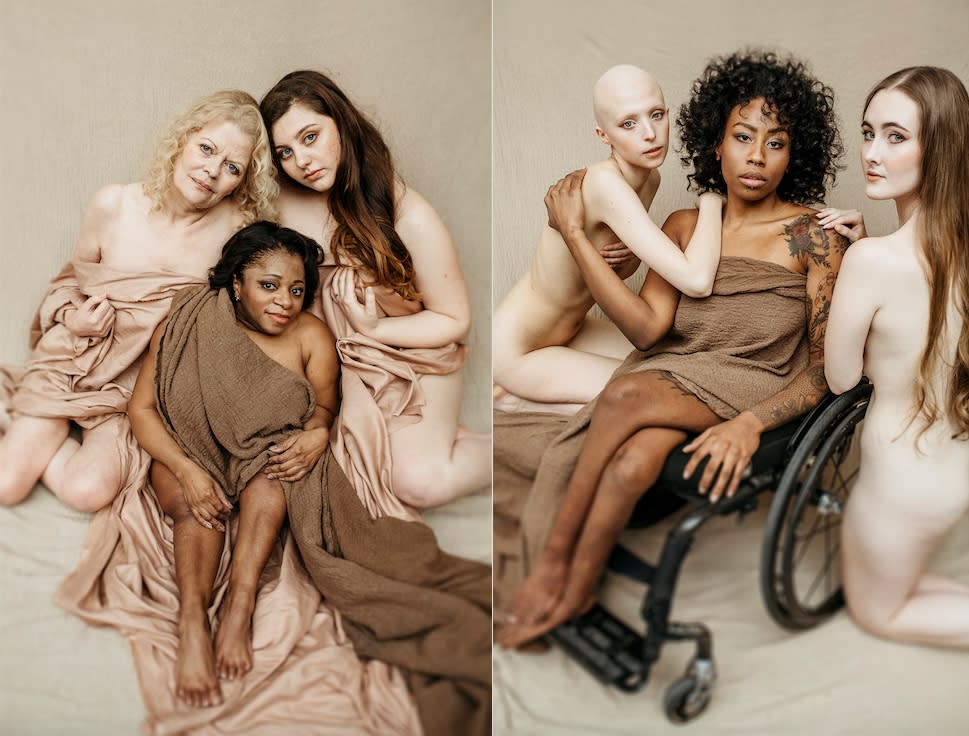
A model agency has marked International Women’s Day with a beautiful shoot celebrating disabilities and difference.
Zebedee Management is a modelling and talent agency representing people with disabilities and visible differences, who are striving to change public perceptions and increase representation of all bodies within the media and fashion industry.
The agency has previously made headlines for their amazing child models, including children with Down’s syndrome, who have appeared in various shoots for huge fashion brands.
But they also represent adult women of all races, sizes, and abilities.
And to celebrate yesterday’s International Women’s Day, the agency has put together a stunning photoshoot featuring women with various conditions and disabilities.
Read more: Tesco launches plasters for different skin tones
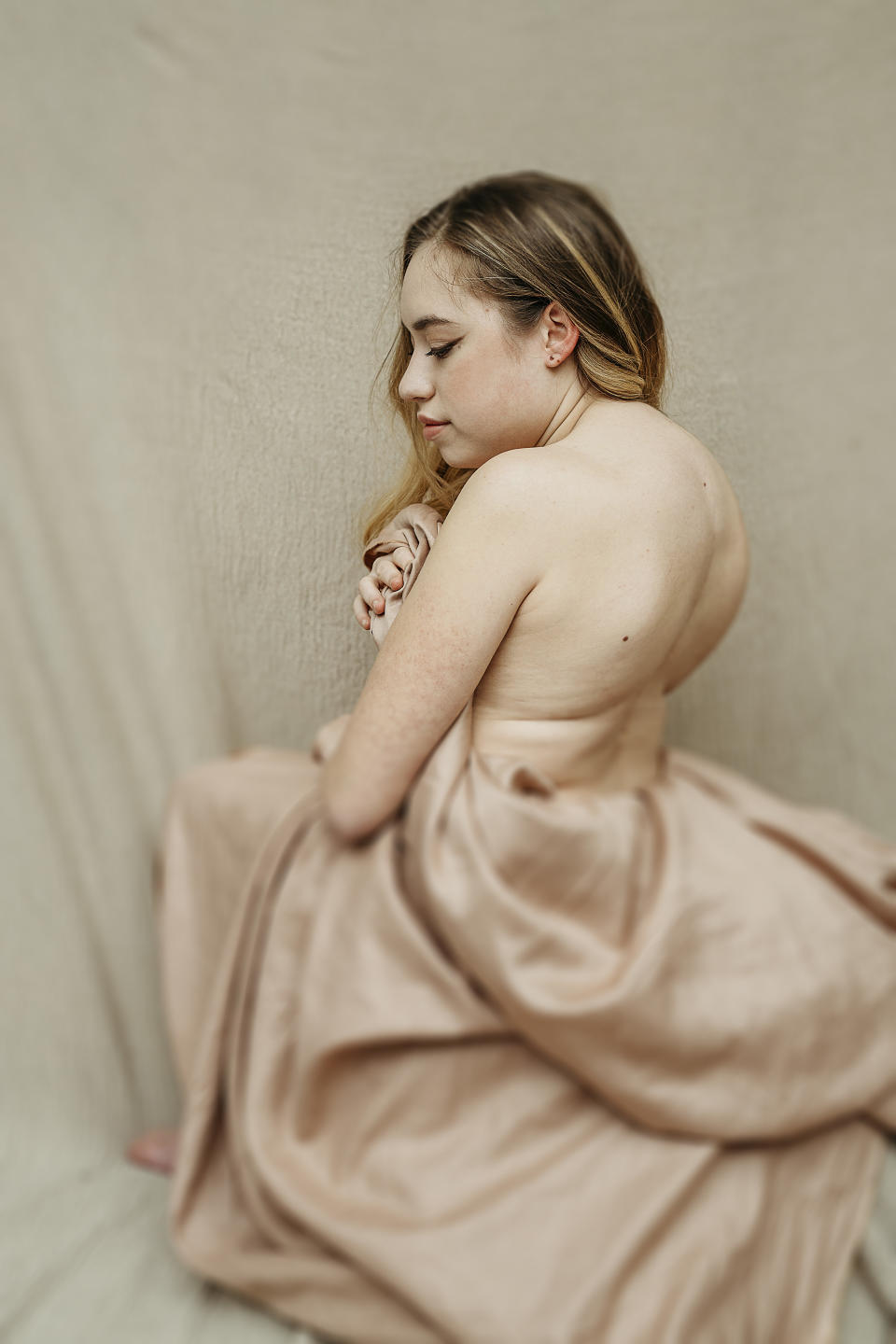
The agency reports that disabled people are actually the most underrepresented minority in the media, and as such they are hoping to help challenge traditional perceptions of beauty and change the conversation surrounding diversity.
“When it comes to gender equality, especially in media and the fashion industry, women with disabilities and visible differences often find themselves left out of the narrative,” the agency explains in a press release.
“Disabled people are the most underrepresented minority in the media, there are more fashion lines for pets than there are for people with disabilities and 8 in 10 disabled people feel underrepresented.”

So they believe the time has come for all women to see themselves represented.
“We hope that the work that Zebedee, its models and the brands we work with, will impact on the wider society in terms of changing attitudes and developing people’s understanding of disability.
“We are optimistic that this will make for a more caring society, and a nicer place for us all to live.”
The women, who come from across the UK, have been diagnosed with a range of different conditions, from those which impact their movement, to others which impact the appearance of their skin.
The beautiful shoot features women who use wheelchairs, those with large birthmarks, hair loss, and others who have an invisible condition impacting their life.
And they all make for some pretty awesome models.
Read more: There is now a black Barbie who wears her hair natural and uses a wheelchair
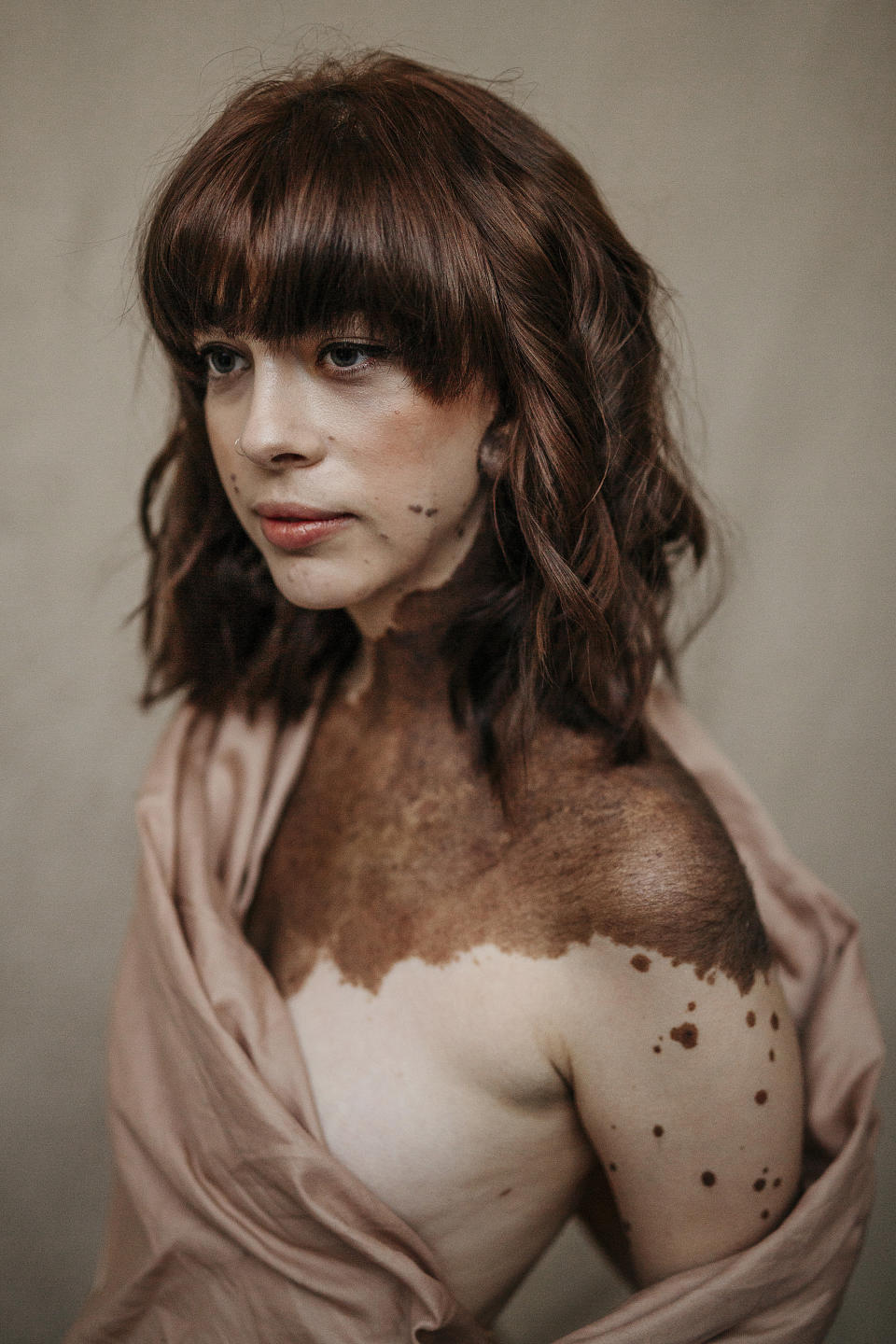
The models
Gemma, 25, a student doctor was born with born with congenital melanocytic naevus which means she has hundreds of birthmarks of different sizes around her body.
“Like many girls, I struggled with my appearance at secondary school and used to cover up with clothes and make-up, passing on trips to the beach or swimming pool.
“Gradually I started to embrace my differences - it’s still a journey but I have come a long way!”
Gemma believes events like IWD allow a platform to highlight the issues some face and facilitate progressive change.
“I am participating in this campaign to promote inclusivity and diversity, celebrate beauty in all its forms and recognise all the wonderful, hardworking women in this world!” she adds.
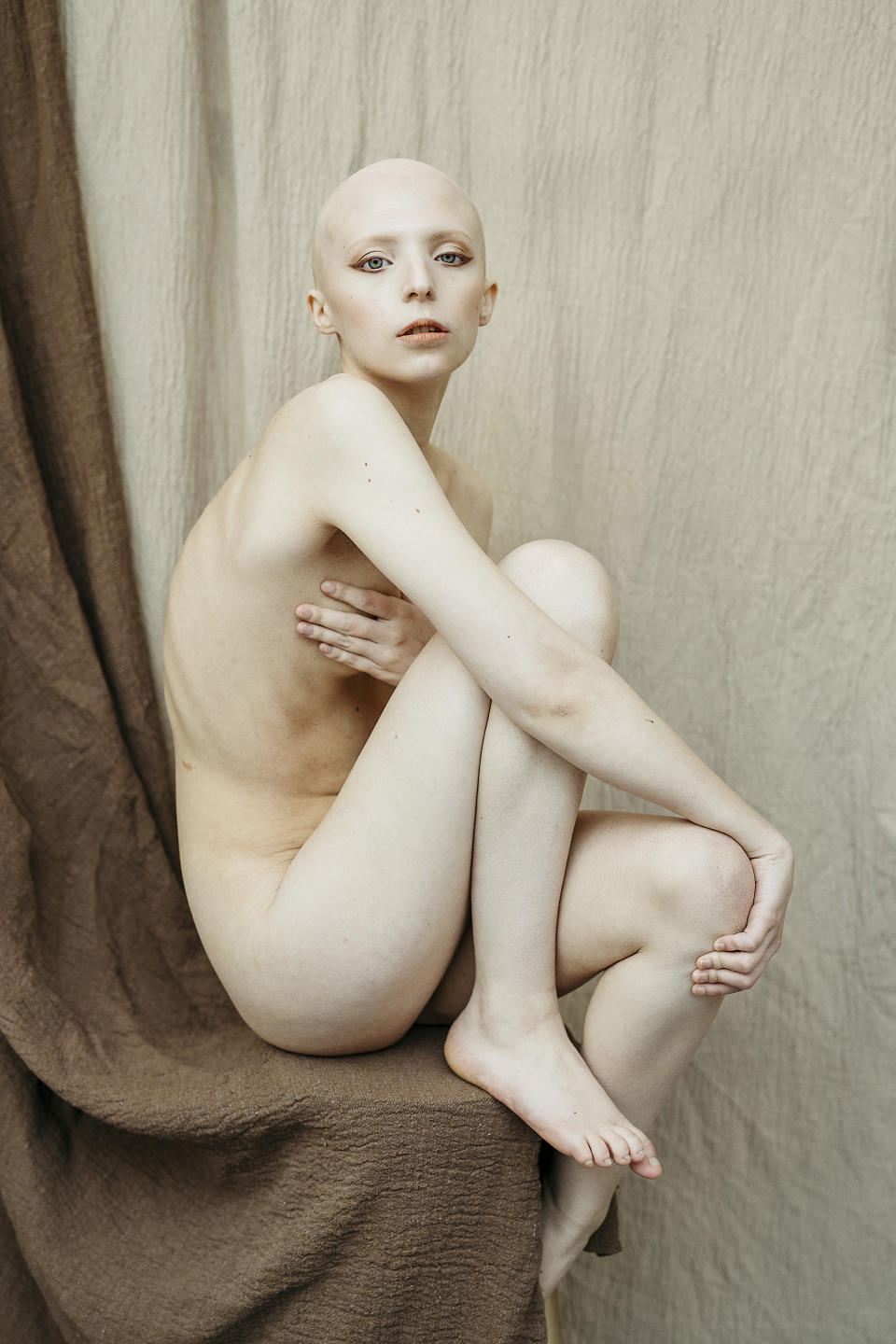
Niamh, 20, has ectodermal skin dysplasia which is a name used to group closely related genetic disorders and has several symptoms which causes abnormal development of ectodermal tissues including skin, hair, nails, teeth and sweat glands.
Most noticeably it has caused complete hair loss.
“IWD, Inclusion and Diversity is important to me because I grew up always standing out from the crowd, feeling different,” she says.
“I got used to the stares and whispers but, just because I was used to it doesn't mean that I was comfortable with it.
“I wish that there was someone like me to look up to, to show me that I was and am beautiful and that I should love myself.”
Read more: Mums launch range of decorations of colour

Another woman who took part in the shoot was Renee Bryant-Mulcare, 21, from Birmingham has paraplegia which means she uses a wheelchair full-time and can’t stand or walk.
“When I was younger I always struggled with my self-esteem and the prospective that I had of myself,” she says. “I always felt like in the fashion industry I wasn’t represented, and I wanted to be a part of the movement towards creating a more inclusive world.”
She believes it is vital to show women that they are all beautiful and worthy.
“We all have things we struggle to accept about ourself but that doesn’t take away from who we are or define us,” she adds.
“I’m hoping that I can help people embrace and love all the things that make them unique, instead of hating them.”
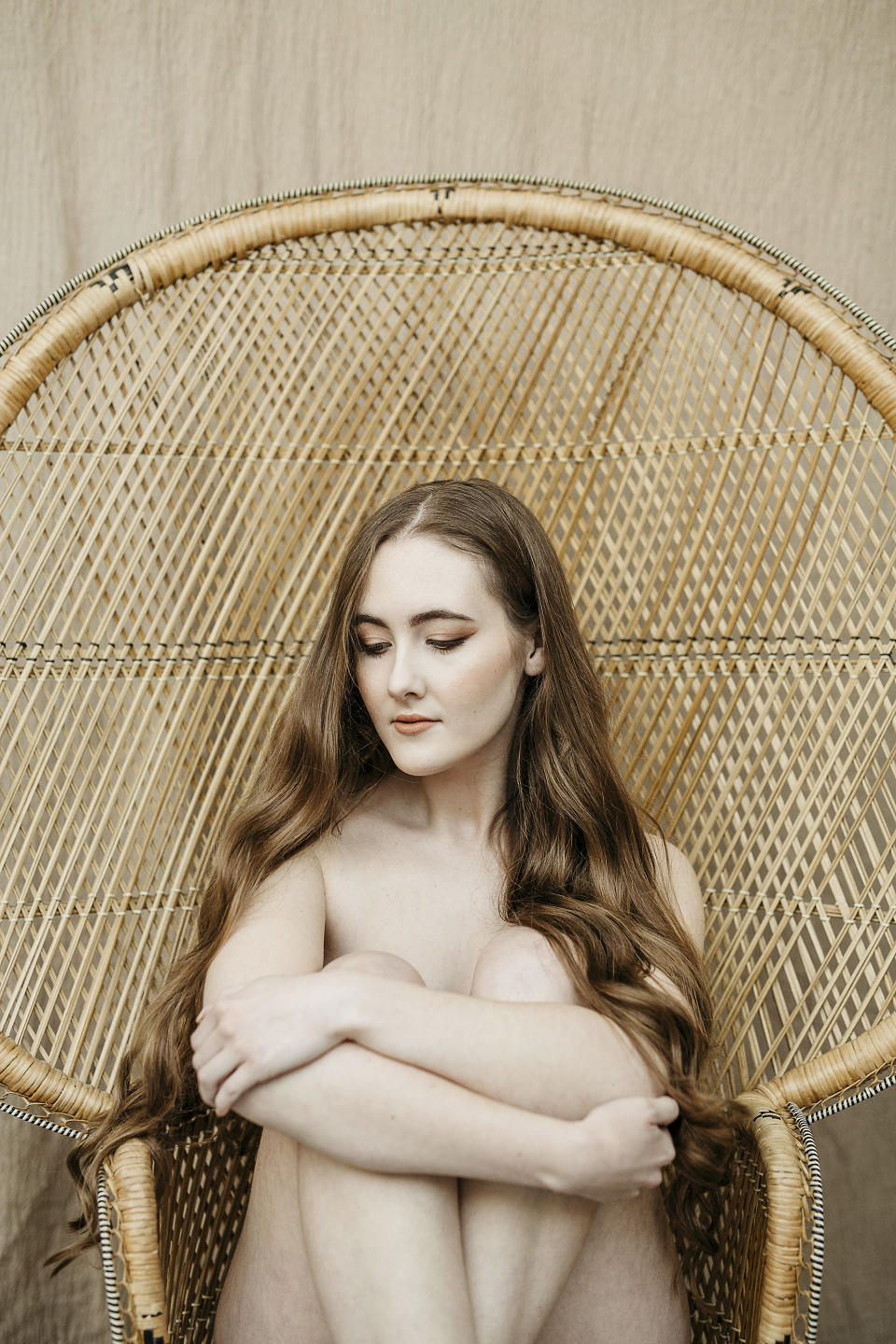
Georgina, 20, has Myalgic Encephalomyelitis/Chronic Fatigue Syndrome, which was diagnosed when she was 10 and “flipped my life upside down.”
Due to her condition she needs a wheelchair.
“It’s been a long road getting my life back on track and being a part of positive campaigns like this one are a huge help,” she says of the diversity shoot.
Georgina says she decided to take part in the shoot because she had seen something similar when she was growing up, it would have really helped.
“I probably wouldn’t of been so hard on myself for trying to fit in because now I know, you don’t need to conform to fit in.
“We are all different and that is ok, in fact, it’s more than ok, it’s beautiful.”



